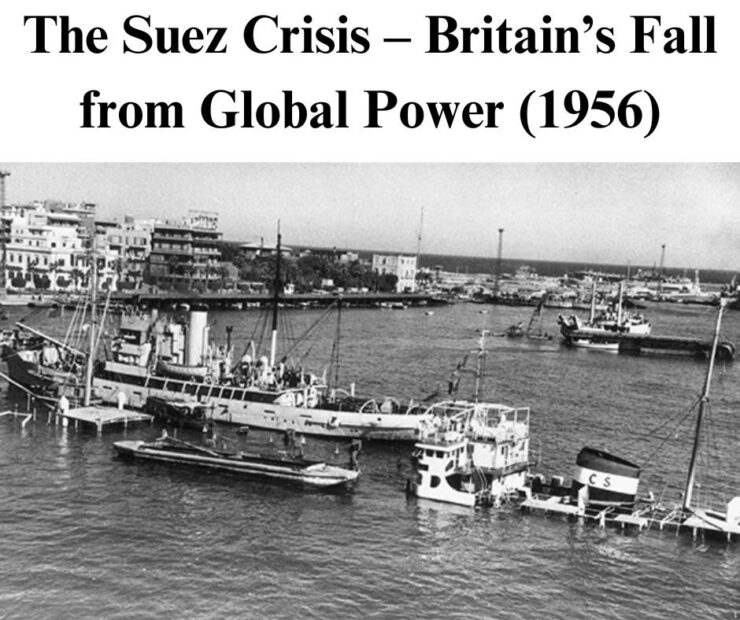
The Suez Crisis – Britain’s Fall from Global Power (1956)
In 1956, a diplomatic and military blunder exposed the limits of Britain’s empire and marked the beginning of its decline as a global superpower.
This was the Suez Crisis — a turning point in modern British history.
What Sparked the Crisis?
•Egyptian President Gamal Abdel Nasser nationalized the Suez Canal, a vital trade route linking Europe and Asia.
•Britain, along with France and Israel, secretly planned to take back control through military force.
The Invasion:
•In October 1956, Israeli forces invaded Egypt.
•Britain and France followed under the guise of peacekeeping — but the world saw through it.
•The operation was swift but diplomatically disastrous.
International Outrage:
•The United States, led by President Eisenhower, opposed the action.
•Global pressure, especially economic threats from the US, forced Britain and its allies to withdraw in humiliation.
Consequences:
•Prime Minister Anthony Eden resigned in disgrace.
•The crisis highlighted Britain’s reliance on US support in the post-war world.
•It signaled the end of Britain’s imperial dominance and the start of a new world order led by the US and USSR.
Legacy:
•The Suez Crisis became a symbol of Britain’s fading influence.
•It accelerated decolonization and a reassessment of Britain’s role on the world stage.
The Suez Crisis was more than a political misstep —it was a reality check that reshaped Britain’s foreign policy and global identity.
